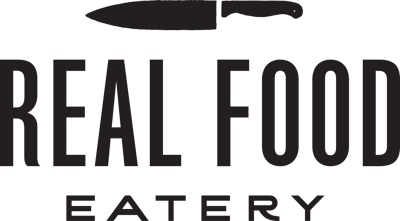Health Hack #7 - The Power of Extra Virgin Olive Oil
The Power of Extra Virgin Olive Oil
In last week’s post we provided an overview of cooking oils. We concluded with a brief rundown that scratched the surface on some of the benefits of Extra Virgin Olive Oil, and we’ll now go a bit deeper into the subject. But before we do, let’s begin by dispelling an overarching myth that hovers above the entire spectrum of cooking oils at large and should be covered before espousing the benefits of EVOO.
Aren't fats bad for you?
No, not necessarily. Like all foods, there’s a broad gamut of fat-containing products, some good and some not so good. Fat is a vital macronutrient, without which our bodies could not sustain life. (Interesting anecdote: of the three “Macronutrients” – fat, protein, and carbohydrate – the first two are necessary to sustain human life, while carbohydrates are not). So to suggest that something all of our bodies require is a bad thing is a fallacy on its face. As touched on in our previous article, aspects such as monounsaturated fat content (versus polyunsaturated) can tilt the healthiness of a particular fat immensely. Have you noticed the proliferation of avocados in health-promoting arenas these past few years? They’re abundant in that coveted monounsaturated component. And so, too, are olives. Since oils represent the pure fat of a food, these key components are transferred from the olive to its oil, but the process by which the oil is extracted is the key in distinguishing an optimal product from inferior ones.
The Spectrum of EVOO
Olive Oil
Oil extracted from the olive fruit, regardless of the age/ripeness of the fruit and the process by which the oil is extracted. It’s typically comprised of a blend of “cold-pressed” oils + processed oils. A process of over-pressing (multiple presses of the olive to extract oil) while adding heat yields more oil, but that of a much lower quality. In addition, much of the nutritional value is lost along the way.
Extra Virgin Olive Oil
Oil extracted from pure, first cold-pressed olives. “First”, meaning the olives are pressed only once to extract their oils. Anything more will lead to a lower quality oil. “Cold-pressed”, meaning the pressing process takes place at a specific temperature with no added heat. Adding heat will also cause the oil quality to suffer. These are non-negotiable tenets, strictly required to be considered Extra Virgin Olive Oil.
The distinction between the two is clear. Extra Virgin Olive Oil is higher quality, providing a more robust flavor and aroma, with a nutritional profile in tact.
But what does "higher quality" translate to?
Below is a list of benefits gleaned from EVOO consumption which all extend beyond the delicately crisp flavor component it lends to a slew of dishes:
Rich in antioxidants
Strong anti-inflammatory properties
Protective against cardiovascular conditions (resultant of its monounsaturated fat content)
Improves insulin sensitivity
Preserves bio-availability of micronutrients in foods it adheres to during the cooking process (most actually actually degrade the products they marinade, rendering their vitamins less available)
Increases bone health
Potentially improves cognitive ability
At Real Food Eatery we don’t shy away from fats, however we’re hyper conscientious of using only those which lend nutritional benefits to our dishes and to our customers, while never seeking to sacrifice flavor in doing so. And so, with these tenets in mind, Extra Virgin Olive Oil reigns supreme in our kitchen and remains the lone cooking oil that we use.
